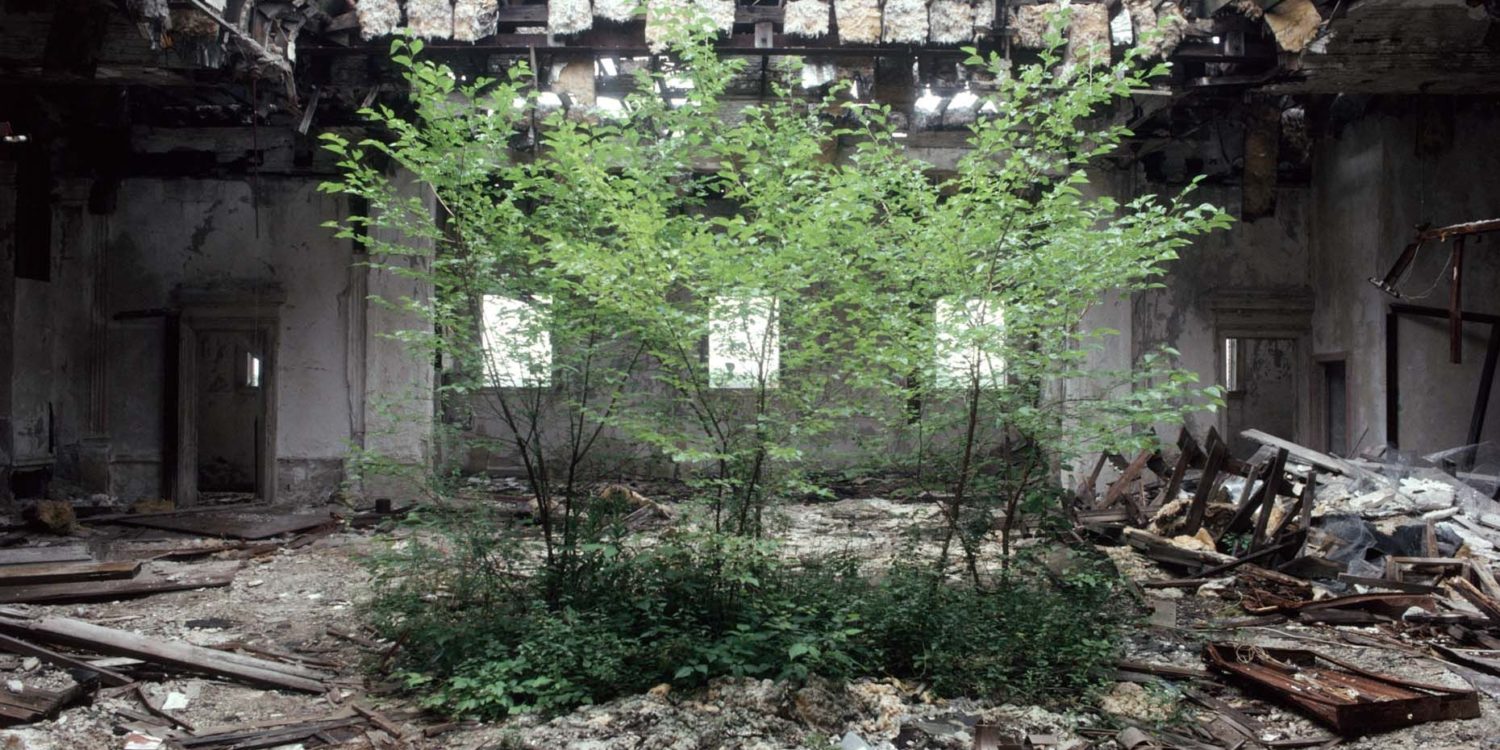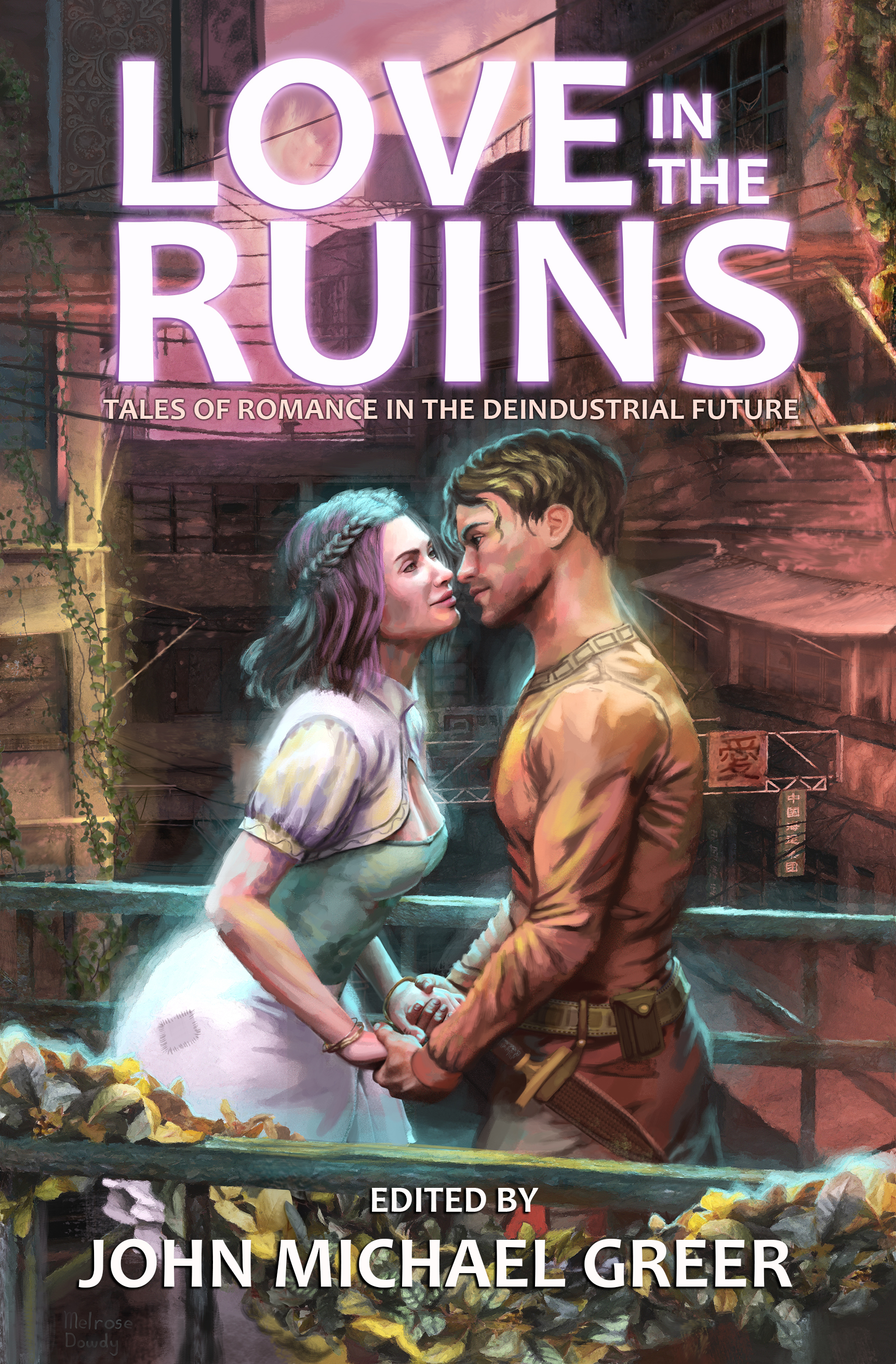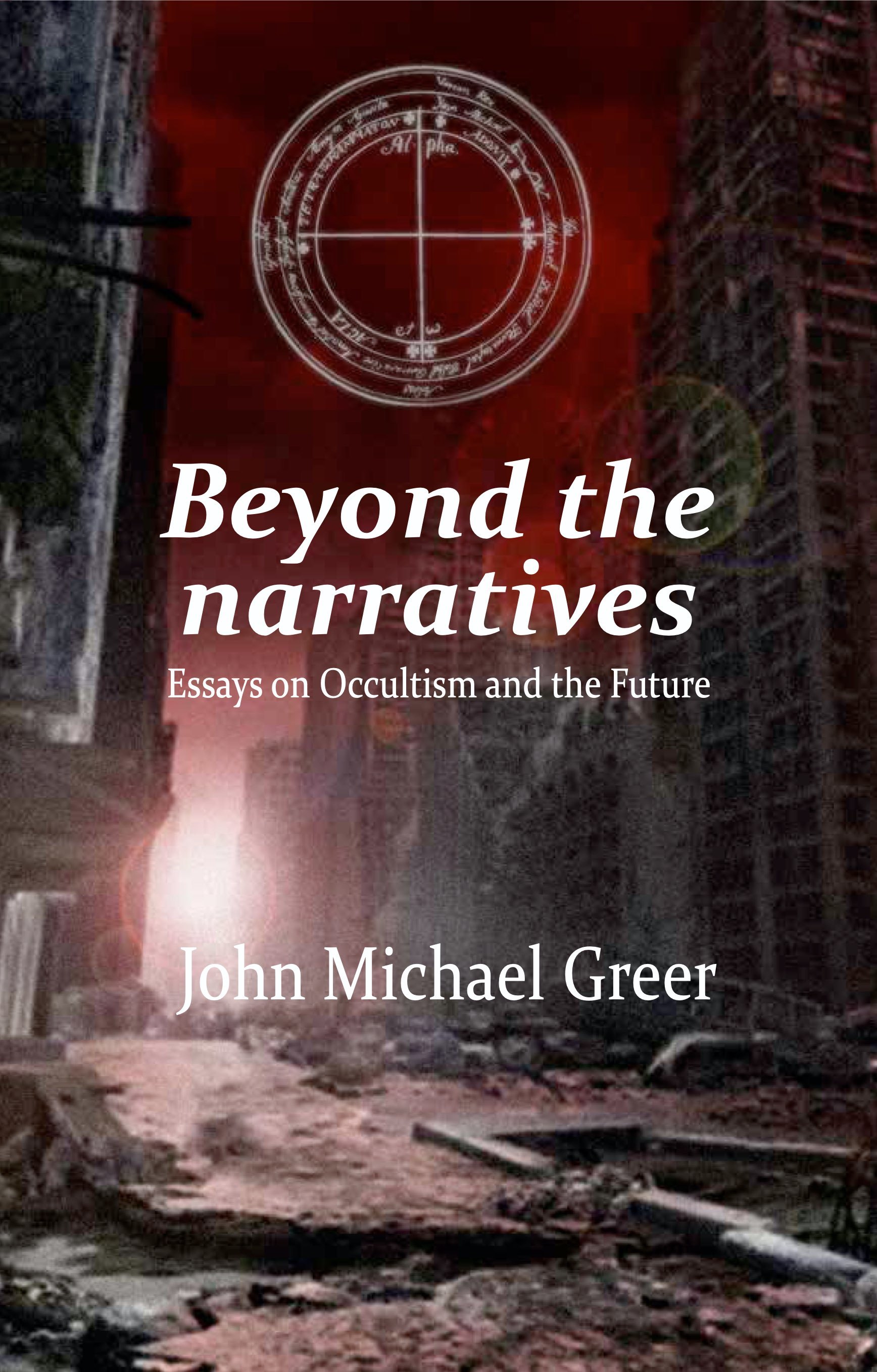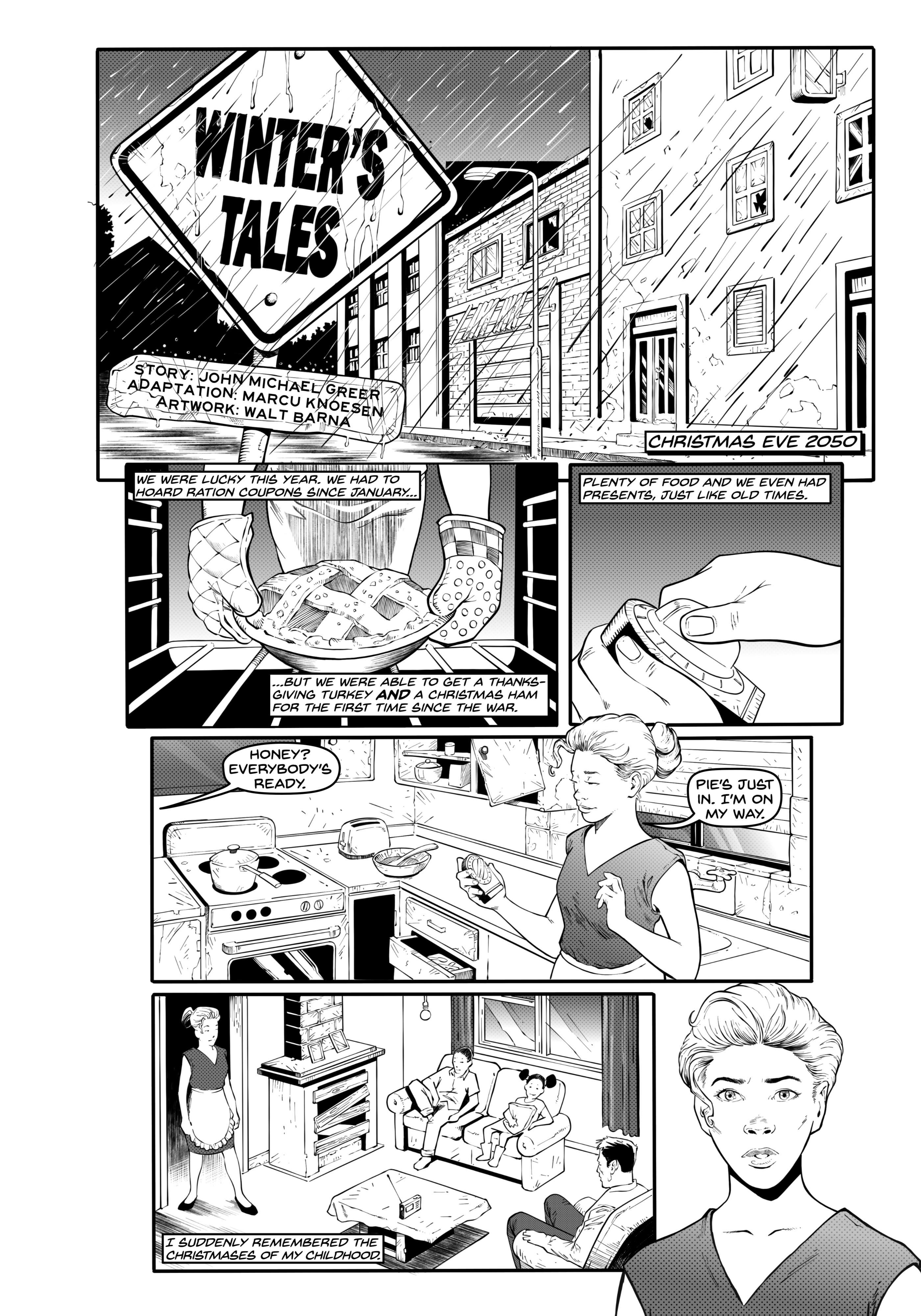
There's a conversation that happens nearly every time I discuss climate change, or contemporary politics, or (as in the most recent case on my blog) the cultural chasm that divides privileged intellectuals from the rest of the population here in the United States. It goes something like this:
Reader: How can those of us who recognize the threat of climate change convince the rest of the American people to listen to us?
Me: You have to start by changing your own lifestyles. As Gandhi said, "you must be the change you seek to make in the world.
Reader: No, you don't understand. The problem's too big for that. Just having activists change their own lifestyles won't make enough difference to matter.
Me: I never said it would. The question you asked is how to get people to listen to you, and the answer is that you have to prove your sincerity and lead by example, by changing your own lifestyles, or nobody else will take you seriously.
Reader: But the situation's so desperate! We've got to convince everyone on the planet to stop using carbon or we're all doomed!
Me: You can't be part of the solution if your lifestyle is part of the problem. Why should anyone else take the problem seriously and stop using carbon if climate change activists themselves aren't willing to accept even modest cuts to their own carbon-fueled lifestyles?
Reader: (Crickets...) It's really quite simple. Imagine, dear reader, that instead of talking about stopping climate change, we were talking about stopping rape. Imagine that there were big organizations dedicated to stopping rape, and curiously enough, most of their membership consisted of serial rapists. Imagine, then, that people pointed out to the serial rapists that if they really wanted to stop rape, they ought to start by not committing any more rapes themselves -- and every time, the serial rapists responded by insisting that you can't stop rape by just having the members of anti-rape organizations give up raping people, that the problem's much bigger than that, and how can they find a way to communicate to everyone in the world that rape is wrong? The answer, of course, is that they can't, because nobody will take them seriously until they themselves stop committing rape.
Climate change activism these days is almost entirely a concern of middle- and upper middle-class people in the industrial world: people, that is, whose lifestyles are disproportionately responsible for the dumping of greenhouse gases; people who use much more fossil fuel energy, and many more of the products of fossil fuel energy, than the average human being. This fact isn't lost on anybody outside the climate change movement -- and the fact that climate change activists by and large insist on leading carbon-intensive lifestyles, while insisting that everyone else has to do something about climate change, has done more to scuttle the movement to stop climate change than any other factor I can think of. Unless something changes fast -- and by "something" I mean the attitudes of those who aren't willing to draw the obvious connection between the problems they think they're fighting and the lifestyles to which they think they're entitled -- the deindustrial future I described in my novel
Star's Reach is looking more likely every day.
 I need some assistance with a fiction project from readers literate in Japanese. It's set in a deindustrial future where most of the population of Japan had to flee the islands a while back -- we won't get into spoiler territory by talking about why. One of the amenities of the community where about half the story takes place is a Shinto shrine dedicated to those kami who also left Japan. Its name in English works out to the Hall of Homeless Gods; it's the Japanese for this that I need to doublecheck.
I need some assistance with a fiction project from readers literate in Japanese. It's set in a deindustrial future where most of the population of Japan had to flee the islands a while back -- we won't get into spoiler territory by talking about why. One of the amenities of the community where about half the story takes place is a Shinto shrine dedicated to those kami who also left Japan. Its name in English works out to the Hall of Homeless Gods; it's the Japanese for this that I need to doublecheck.  I'm delighted to announce that the first issue of New Maps, the new quarterly magazine of deindustrial future fiction, is in print and available for purchase. It's got stories by a fine mix of established deindustrial fiction authors and newcomers to the field -- Pierre Magdeleine, Dawn Vogel, Daniel Chawner, Jonathan Reif, Jeff Burt, David England, G. Kay Bishop and Violet Bertelsen -- as well as a book review and a letters column that is already full of conversation. I'm eagerly looking forward to my copy.
I'm delighted to announce that the first issue of New Maps, the new quarterly magazine of deindustrial future fiction, is in print and available for purchase. It's got stories by a fine mix of established deindustrial fiction authors and newcomers to the field -- Pierre Magdeleine, Dawn Vogel, Daniel Chawner, Jonathan Reif, Jeff Burt, David England, G. Kay Bishop and Violet Bertelsen -- as well as a book review and a letters column that is already full of conversation. I'm eagerly looking forward to my copy.  Regular readers of my blog will be familiar with my longtime interest in deindustrial fiction -- that is to say, fiction set in the kind of future we're actually going to get, in which declining resources, crumbling infrastructure, and the accelerating failure of the grand myth of perpetual progress take the place of the shoddy Tomorrowland kitsch that provides so many minds these days with their prefab thoughts. There aren't many venues that will publish stories of that kind -- it's long been a source of wry amusement to me that so many of those cultural venues that like to strut around claiming to be antinomian and transgressive are the first to run like rabbits back into the conventional wisdom the moment anybody proposes something that actually contradicts the conformist beliefs of our time.
Regular readers of my blog will be familiar with my longtime interest in deindustrial fiction -- that is to say, fiction set in the kind of future we're actually going to get, in which declining resources, crumbling infrastructure, and the accelerating failure of the grand myth of perpetual progress take the place of the shoddy Tomorrowland kitsch that provides so many minds these days with their prefab thoughts. There aren't many venues that will publish stories of that kind -- it's long been a source of wry amusement to me that so many of those cultural venues that like to strut around claiming to be antinomian and transgressive are the first to run like rabbits back into the conventional wisdom the moment anybody proposes something that actually contradicts the conformist beliefs of our time.  Since so many of us are spending long hours at home these days, waiting for the coronavirus to finish up its fifteen minutes of fame, I'm pleased to say that there's some new reading material forthcoming. First of all, I'm delighted to announce that Love In The Ruins, the world's first anthology of deindustrial romance stories, is now
Since so many of us are spending long hours at home these days, waiting for the coronavirus to finish up its fifteen minutes of fame, I'm pleased to say that there's some new reading material forthcoming. First of all, I'm delighted to announce that Love In The Ruins, the world's first anthology of deindustrial romance stories, is now Second, I'm very pleased to say that one of the books I consider my best work is going into print again in a new, updated, and revised edition. Inside a Magical Lodge remains the only significant book in print on the traditional lodge system, the toolkit of social and ritual organization shared by fraternal lodges such as the Masons and the Elks, on the one hand, and magical lodges such as the Golden Dawn and the Martinists on the other. This is a how-to volume, not simply a history or an overview, and it's set up to show readers how to participate in a magical lodge -- or design and start one from scratch. You can preorder a copy
Second, I'm very pleased to say that one of the books I consider my best work is going into print again in a new, updated, and revised edition. Inside a Magical Lodge remains the only significant book in print on the traditional lodge system, the toolkit of social and ritual organization shared by fraternal lodges such as the Masons and the Elks, on the one hand, and magical lodges such as the Golden Dawn and the Martinists on the other. This is a how-to volume, not simply a history or an overview, and it's set up to show readers how to participate in a magical lodge -- or design and start one from scratch. You can preorder a copy  Finally, the third and (for the time being) last volume of my collected short essays and talks, Beyond the Narratives, is also
Finally, the third and (for the time being) last volume of my collected short essays and talks, Beyond the Narratives, is also  Those of my readers who picked up any of the volumes of the After Oil series of deindustrial-SF anthologies, or subscribed to deindustrial SF quarterly
Those of my readers who picked up any of the volumes of the After Oil series of deindustrial-SF anthologies, or subscribed to deindustrial SF quarterly 
 There's a conversation that happens nearly every time I discuss climate change, or contemporary politics, or (as in the most recent case on my blog) the cultural chasm that divides privileged intellectuals from the rest of the population here in the United States. It goes something like this:
There's a conversation that happens nearly every time I discuss climate change, or contemporary politics, or (as in the most recent case on my blog) the cultural chasm that divides privileged intellectuals from the rest of the population here in the United States. It goes something like this:  The latest issue of Into the Ruins has just been released by Figuration Press. For those of my readers who aren't familiar with Into the Ruins, it's a magazine of science fiction stories about the future we're actually going to get -- as in, wave goodbye to the hackneyed, done-to-death mandatory orthodox interstellar future of mainstream SF, say hello to futures here on earth as people deal with the aftermath of the Industrial Age and the emergence of new cultures in the far future. I think of Into the Ruins as the ongoing quarterly successor to my four volumes of postpetroleum SF, the After Oil series, and it features some of the most thought-provoking science fiction being published today. Pick up a copy
The latest issue of Into the Ruins has just been released by Figuration Press. For those of my readers who aren't familiar with Into the Ruins, it's a magazine of science fiction stories about the future we're actually going to get -- as in, wave goodbye to the hackneyed, done-to-death mandatory orthodox interstellar future of mainstream SF, say hello to futures here on earth as people deal with the aftermath of the Industrial Age and the emergence of new cultures in the far future. I think of Into the Ruins as the ongoing quarterly successor to my four volumes of postpetroleum SF, the After Oil series, and it features some of the most thought-provoking science fiction being published today. Pick up a copy 